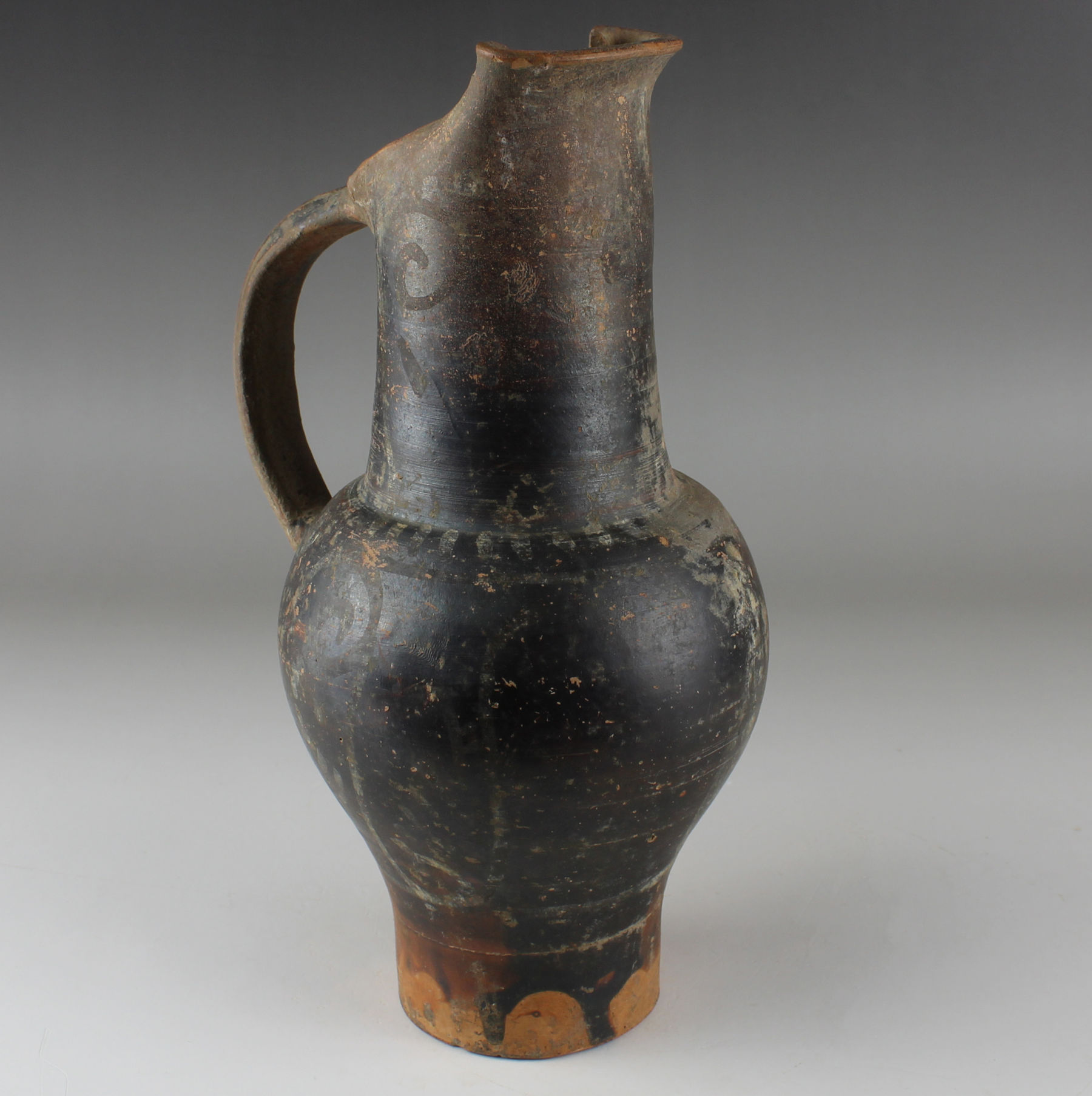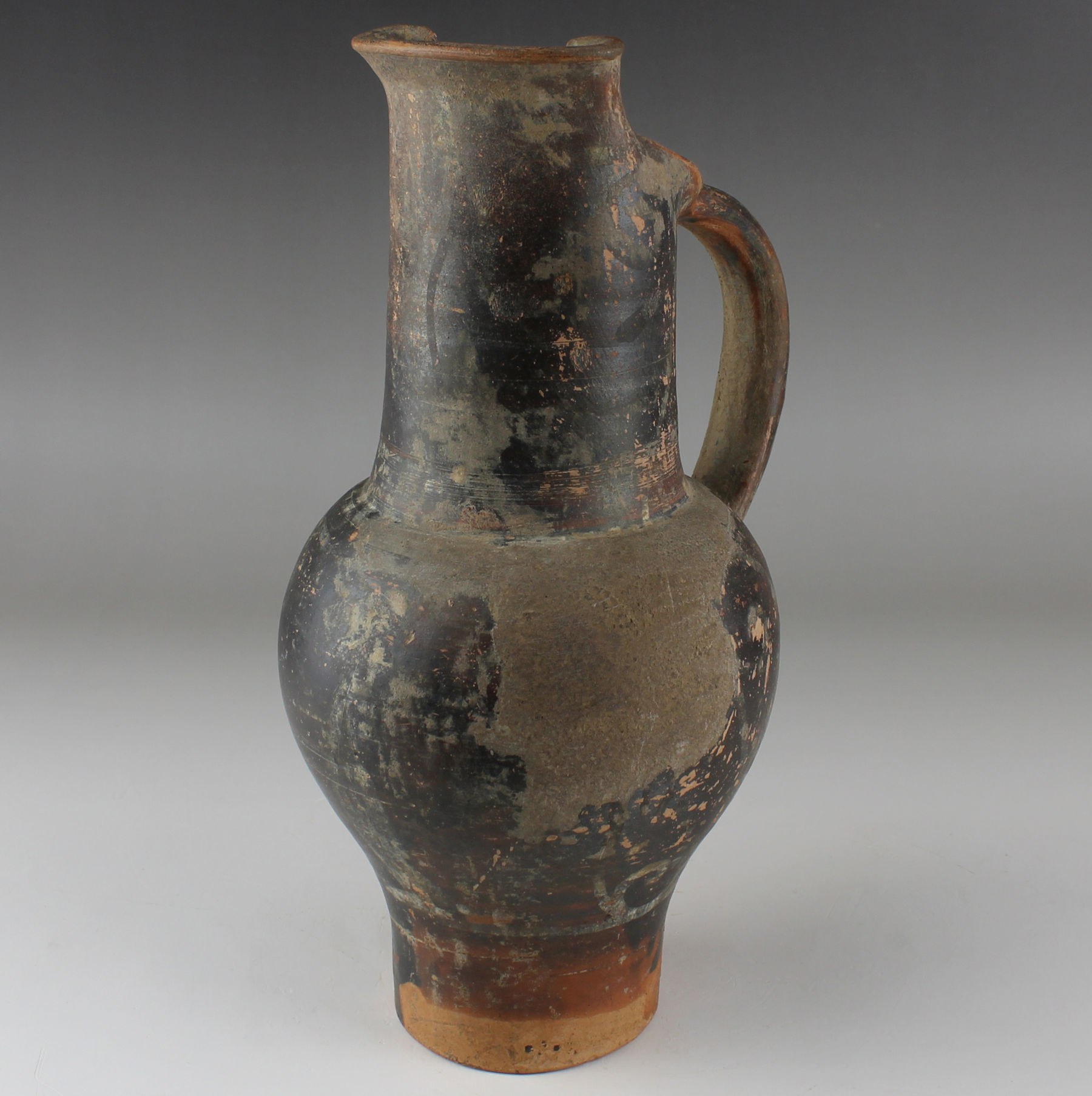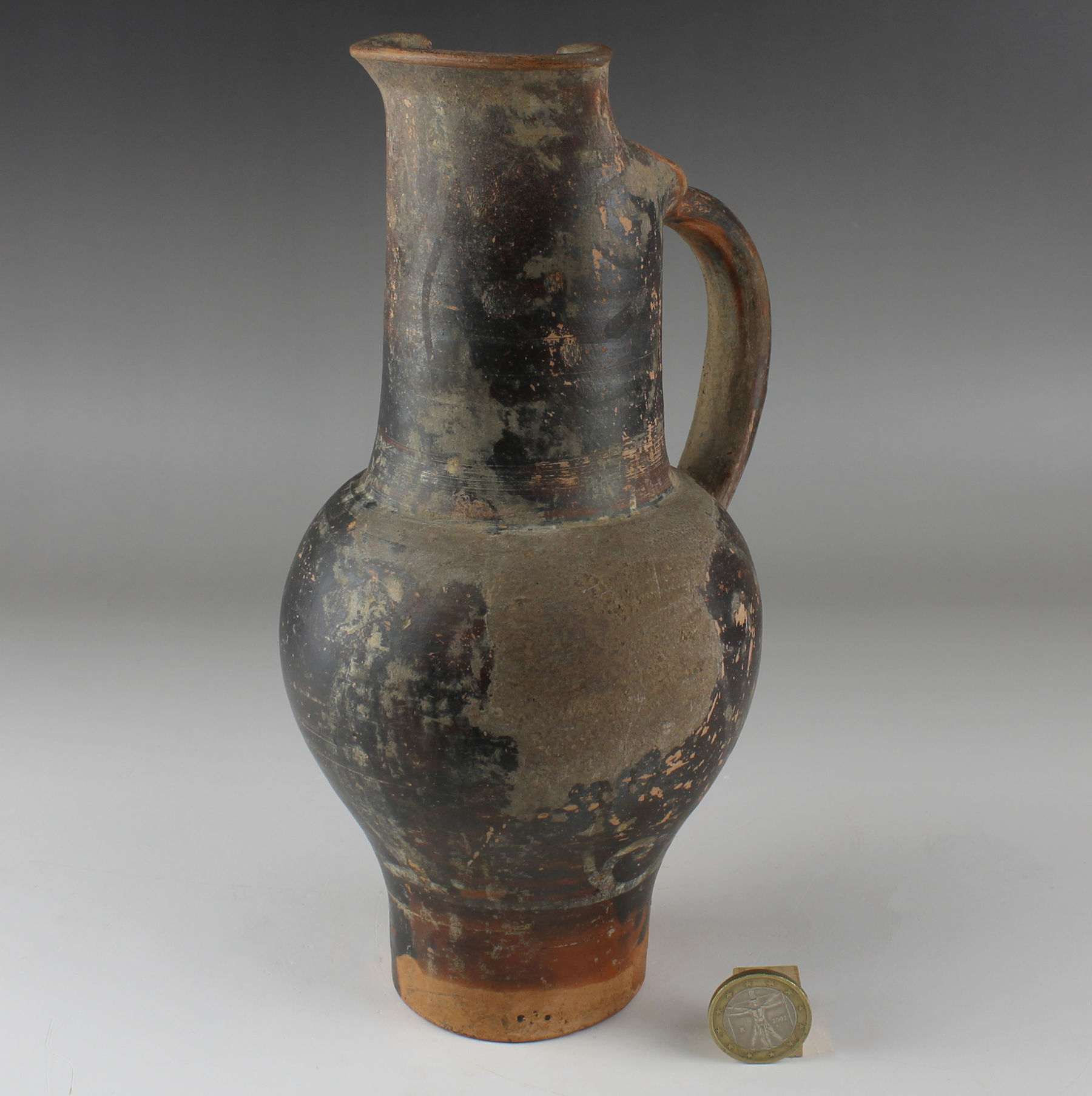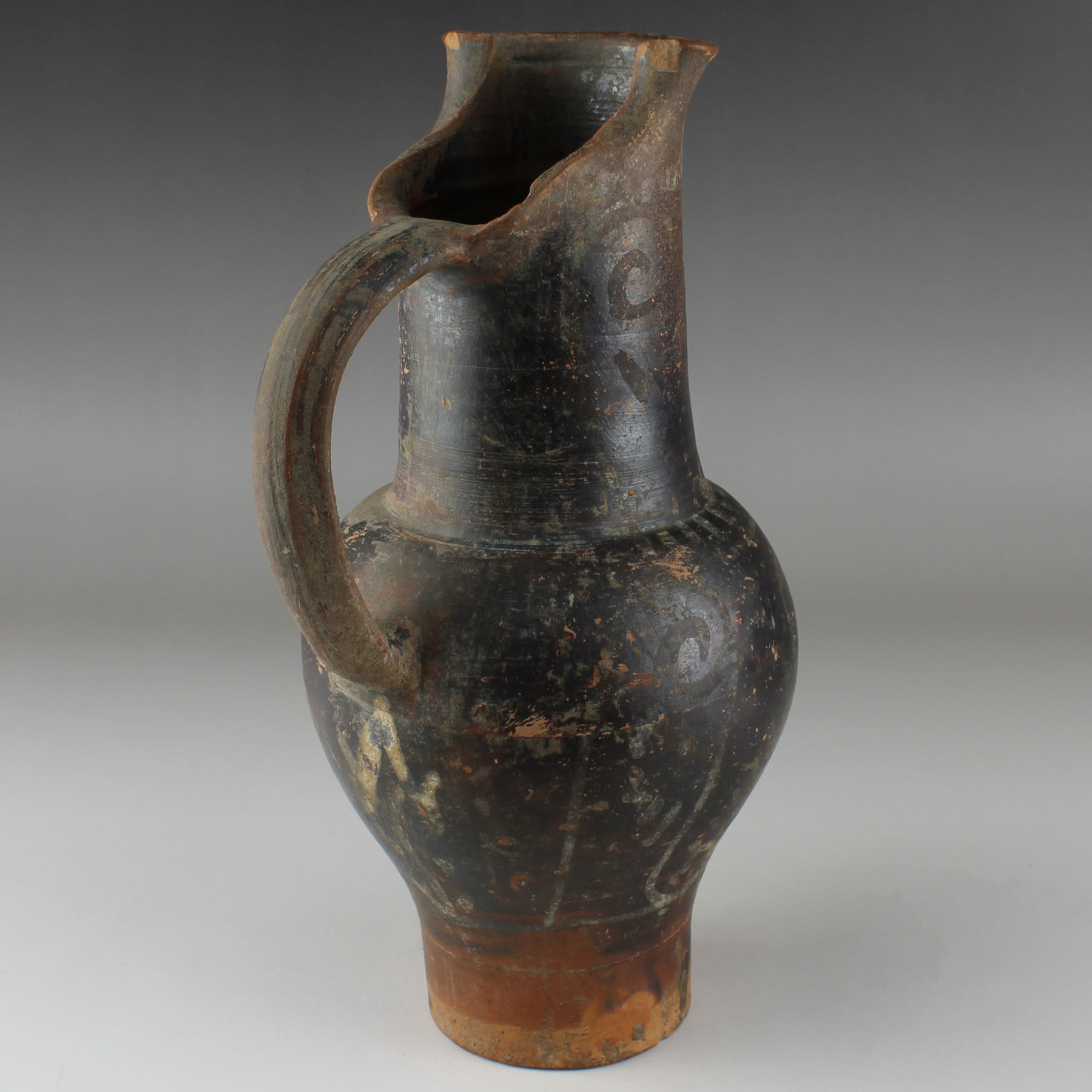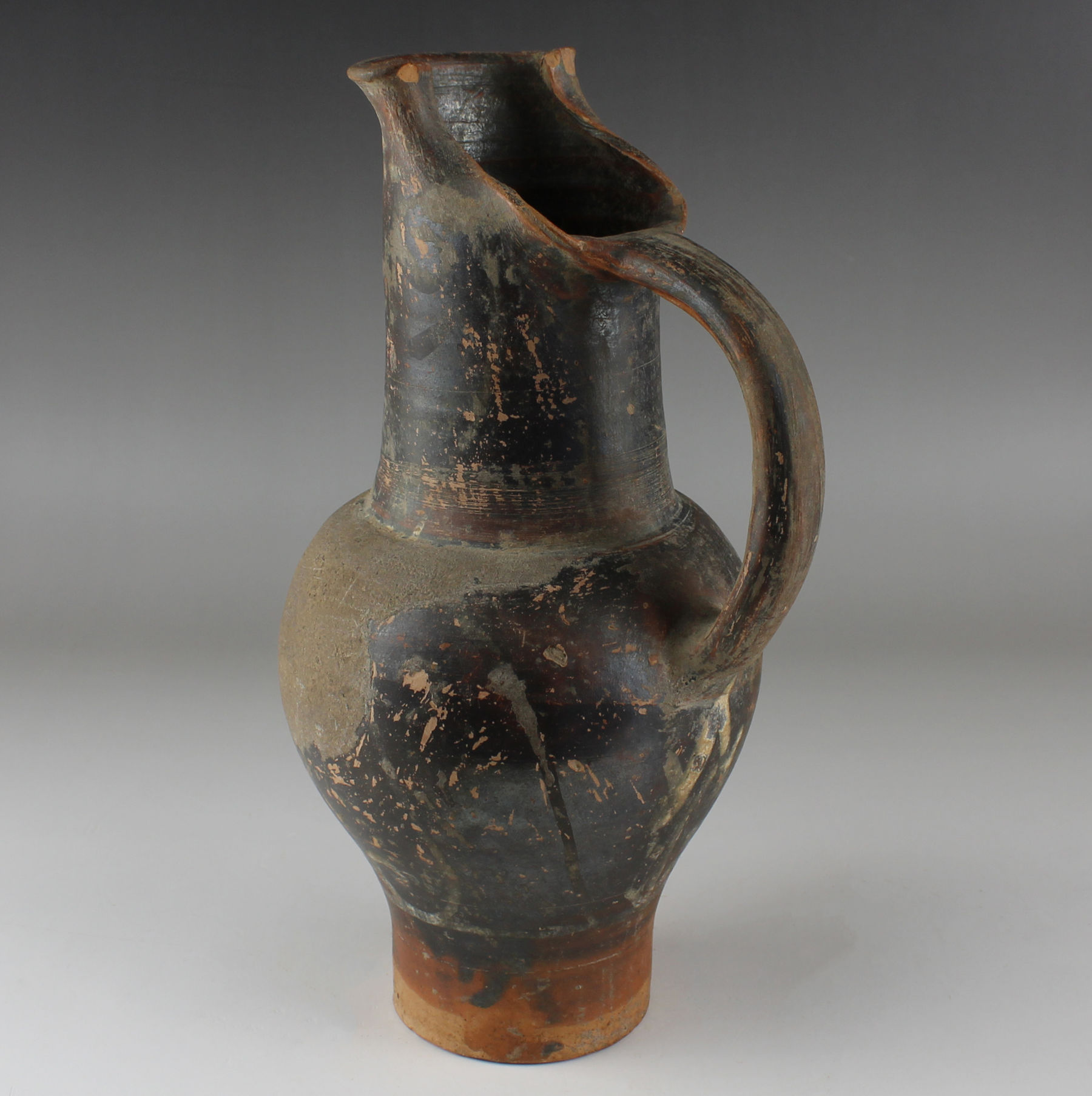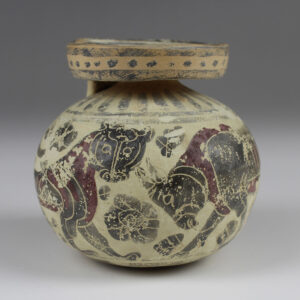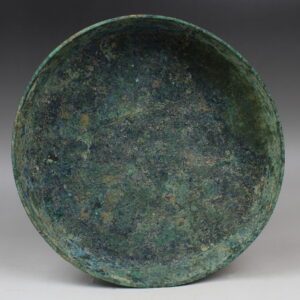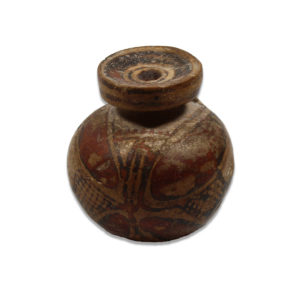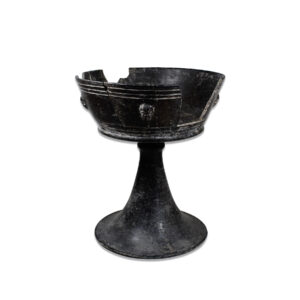Description
| ITEM | Beaked jug |
| MATERIAL | Pottery |
| CULTURE | Faliscian |
| PERIOD | 325 – 300 B.C |
| DIMENSIONS | 224 mm x 109 mm |
| CONDITION | Good condition |
| PROVENANCE | Ex German private collection, S.O., Munich, acquired before 1990. Ex German private collection, Starnberg |
The Faliscans were an ancient Italic people who lived in the city of Falerii and a considerable area of surrounding territory, the ager Faliscus. They spoke an Italic language, Faliscus, which was closely related to Latin. Despite considerable Etruscan influence, the Faliscans retained, in addition to their language, many features of their Italic origin, such as the worship of Ceres, Mercury or Mars, and the cult of the god Soranus by the Hirpi Sorani.
Established at least from the beginning of the first millennium BC in an area on the right bank of the river Tiber between Etruria and Latium, the Phaliscans maintained close cultural, commercial and political ties with the Etruscans from the first centuries of their history. Allies of Veyes in the wars that this city waged against Rome in the 5th century BC, which ended with the fall of the Etruscans. They remained hostile to Roman expansion until, like all the other peoples of the Italic peninsula, they were finally subjugated in the 3rd century BC. In 241 BC their last war against Rome ended not only with the loss of the last remnants of political autonomy but also with the destruction of their historic centre and main city, Falerii.


